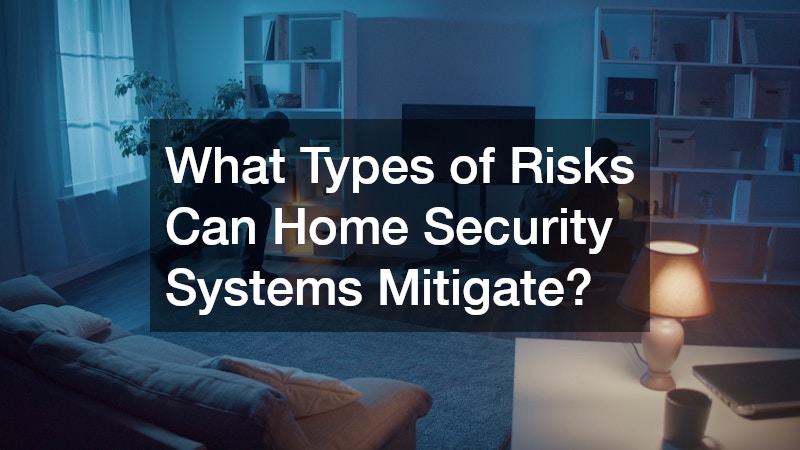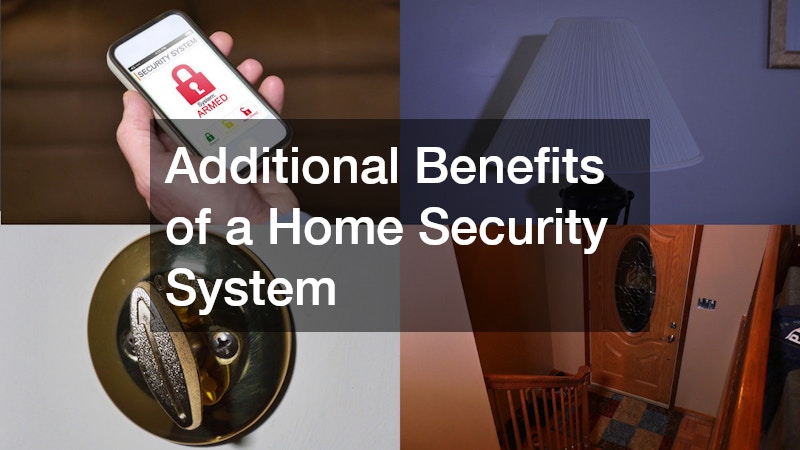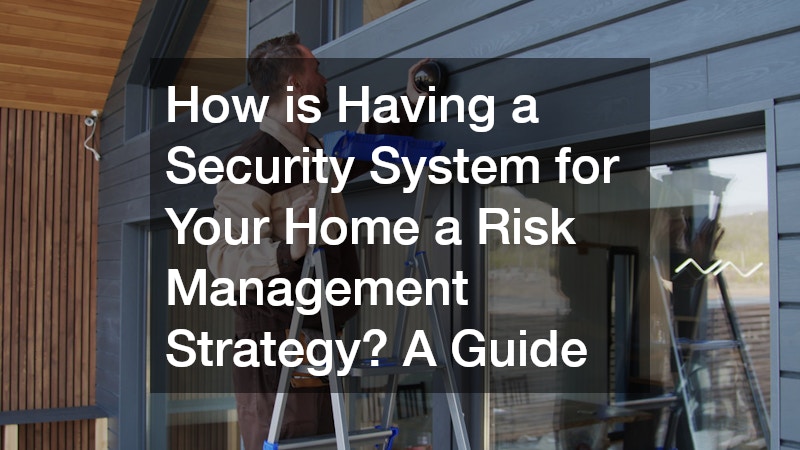
Owning a home is more than just having a place to live—it’s a long-term investment that requires protection. Every homeowner faces various risks, including burglary, fire, vandalism, and natural disasters. This is where risk management plays a crucial role. Risk management is the process of identifying, assessing, and reducing potential threats to your assets—in this case, your home.
While there are many ways to manage these risks, one of the most effective methods is installing a home security system. It’s not just a modern convenience or a luxury; it’s a smart strategy for protecting your family, property, and financial future.
In this article, we’ll explore how having a security system for your home is a risk management strategy and why it’s one of the best moves any homeowner can make.
How Is Having a Security System for Your Home a Risk Management Strategy?
Home security systems do more than just deter criminals—they actively reduce risk and improve response times in emergencies.
When you ask, “What is a risk management strategy you could use to protect your home?”, a properly installed and maintained security system is one of the most effective answers. Here’s why:
- Threat detection: Security systems monitor for unauthorized entry, smoke, fire, and even water leaks, helping prevent damage before it escalates.
- Incident response: Many systems automatically contact emergency services, ensuring help is dispatched immediately.
- Loss prevention: Burglar alarms and surveillance cameras deter theft, reducing the likelihood of financial loss.
- Insurance benefits: Homeowners with security systems often qualify for discounts on insurance premiums.
By addressing potential threats before they cause harm, a security system becomes a key component of a comprehensive risk management plan.
What Types of Risks Can Home Security Systems Mitigate?

A security system helps reduce various risks that homeowners commonly face. Let’s break down some of the key ones:
- Burglary and Break-ins
- Motion sensors, door/window alarms, and surveillance cameras make your home less attractive to intruders.
- Signs and stickers indicating a monitored system further deter criminal activity.
- Fire and Carbon Monoxide
- Smart detectors integrated with security systems provide early warnings, giving you precious time to evacuate and respond.
- Flooding and Water Damage
- Water leak detectors can alert you to plumbing failures or basement flooding, helping you take action before extensive damage occurs.
- Medical Emergencies
- Some systems offer panic buttons or wearable medical alert devices, providing fast access to emergency services for seniors or those with health issues.
These features collectively create a safer, more resilient home environment—one that’s actively monitored for both human and environmental threats.
What to Look for in a Risk-Reducing Security System
Not all security systems offer the same level of protection. When choosing one for your home, keep these features in mind to ensure maximum risk mitigation:
- 24/7 Professional Monitoring
- Ensures real-time response to alarms or emergencies, even when you’re away.
- Mobile App Integration
- Allows remote access to your system for arming, disarming, and checking live camera feeds.
- Smart Sensors and Detectors
- Look for systems that monitor for fire, carbon monoxide, motion, and flooding.
- Video Surveillance
- High-resolution indoor and outdoor cameras can provide crucial evidence in the event of a crime or accident.
- Backup Power and Cellular Connectivity
- Protects your system from being disabled during power outages or internet failures.
Choosing a system that aligns with your home’s specific vulnerabilities ensures it serves as a dependable risk management tool.
Additional Benefits of a Home Security System

Beyond protection, having a security system offers peace of mind and practical value:
- Lower Insurance Premiums
- Many insurance providers offer discounts of up to 20% for homes with monitored systems.
- Remote Monitoring While Traveling
- Keep an eye on your property from anywhere, preventing surprises when you return.
- Family Safety
- Know when your children arrive home from school or if someone enters a restricted area.
- Increased Property Value
- A pre-installed security system can make your home more appealing to future buyers.
These added benefits make the investment in a security system not just a safety choice, but a smart financial one.
Final Thoughts: Make Risk Management Part of Homeownership
Your home is one of your most valuable assets, and protecting it should be a top priority. By incorporating a security system into your risk management strategy, you’re taking a proactive step toward safety, security, and peace of mind.
From deterring intruders to detecting environmental hazards, the modern home security system is a powerful tool in safeguarding what matters most. So, if you’re wondering, how is having a security system for your home a risk management strategy? Now you know. It’s not just a layer of defense; it’s a well-rounded plan to reduce threats, avoid losses, and build a safer home for your loved ones.




